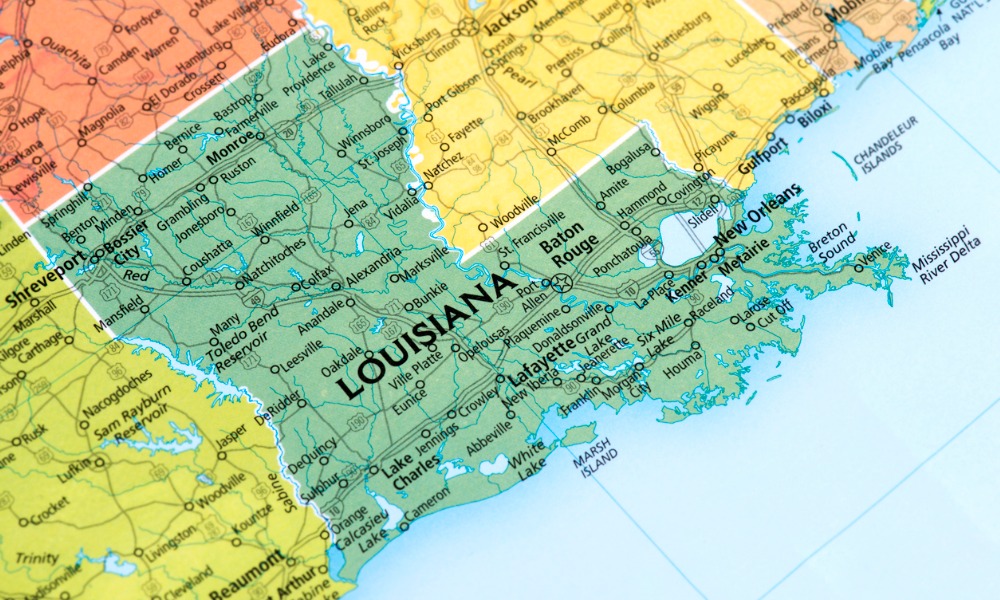Specialist sees increased interest as homeowners struggle with high premiums

Soaring property insurance costs are pushing more Louisiana seniors to explore reverse mortgages as a way to manage their finances. Inbound inquiries about these products have been on the rise, according to a reverse mortgage specialist.
“A lot of my calls start with clients asking about whether or not they should get a reverse mortgage,” Alison Calamia, a reverse mortgage loan originator at Americas Mortgage Resource, said in an interview with KPLC TV. “My next question is ‘why are you calling? What has occurred that made you make this phone call?’ Currently, they say ‘my insurance just went through the roof’.”
The sudden increase in property insurance rates has hit homeowners hard, particularly older residents living on fixed incomes. Many are struggling to afford the sharp rise in premiums.
For example, Calamia shared the story of one client whose annual insurance costs jumped from $3,000 to $14,000. “She can’t afford to pay that any longer,” Calamia said. “She does have a mortgage on her property, and she might lose her house if she can’t make that mortgage payment.”
Even seniors who own their homes outright are feeling the pressure. Cheron Brylski, a New Orleans resident, decided to put her home up for sale earlier this year, citing unaffordable property insurance and taxes.
“It’s basically making a living in a house that I own, and I own outright, impossible for me to stay here,” Brylski told KPLC TV in June.
These stories are becoming increasingly common, the report noted, as many older homeowners face the prospect of losing homes they’ve lived in for decades.
“Most of the time it’s the house where they raised their children. And we live in the South. We don’t want to leave that house. We want to stay put,” Calamia said.
As a result, more seniors are considering reverse mortgages as a way to tap into their home equity and generate extra cash.
Calamia explained that reverse mortgages allow homeowners to access a portion of their home’s value without having to make monthly payments, as long as they continue living in the home and covering insurance and taxes.
“In a nutshell, it is a mortgage against the home that allows for a percentage of the property value to be used as a stream of monthly income, a line of credit, or a lump sum to pay existing mortgages, but it does not come with a monthly payback as long as the borrower lives in the home,” she said. “They do have to pay taxes and insurance, but there’s not that principal and interest part of it.
“In essence, the house is going to pay for the principal that they would receive and the interest on it over time instead of physically making a traditional mortgage payment, the house is paying for it.”
The cash or credit line from a reverse mortgage can be used for various expenses, including skyrocketing insurance premiums. However, Calamia acknowledged that many homeowners are hesitant because of misconceptions surrounding reverse mortgages.
“One of the biggest myths about reverse mortgages is ‘I can’t get a reverse mortgage if I still owe money on my home’,” Calamia said.
That’s not true, she clarified. There just needs to be enough equity in the reverse mortgage to pay off the existing mortgage, plus cover the closing costs.
“In a reverse mortgage the available funds, which is a percentage of the property value, there needs to be enough in the reverse mortgage to pay off that mortgage plus cover the closing costs,” Calamia added. “We don’t have any out-of-pocket cost so the cost of getting the loan is worked into the loan.”
Read next: Which lenders are leading the way in reverse mortgage?
Another misconception is that homeowners lose the title to their home.
“They do keep that title as long as they just live in it,” she explained. “And one day, when the mortgage is due and payable - which is usually after the borrower has sold the property or has permanently moved out of the home - when the loan becomes due and payable, any amount that was given to the borrower is paid back along with interest on it over time. There’s no end date. The date is when they no longer live there, usually after death.”
While reverse mortgages may not be the right fit for every senior, Calamia believes they are providing a lifeline to many who are struggling with the rising costs of homeownership in Louisiana.
Stay updated with the freshest mortgage news. Get exclusive interviews, breaking news, and industry events in your inbox, and always be the first to know by subscribing to our FREE daily newsletter.



